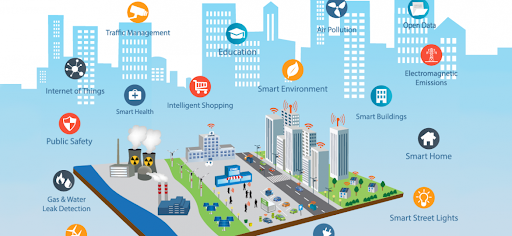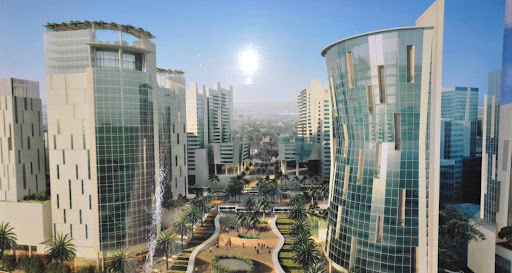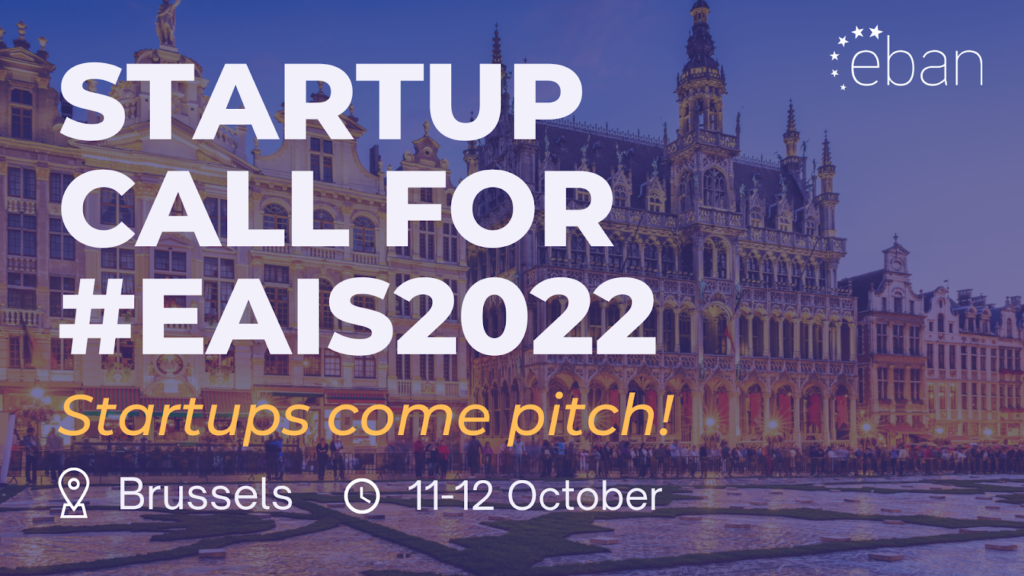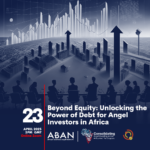
Dear ABAN Member,
A smart city can be defined as a municipality that uses Information and Communication Technology to increase its operational efficiency, share information with the public and improve both the quality of government services and citizen welfare.
Most cities in Africa are plagued with major problems such as lack of water and electricity due to limited resources, as well as heavy traffic congestion that leads to lower productivity and poor access to sanitation facilities. This, as Africa’s urban population is projected to grow from 45% to 60% by 2050.
Smart cities are intended to curtail and solve problems faced by urban Africa, through technology and modernised infrastructure. They pledge to offer better use of space, less traffic, cleaner air, and more efficient civic services, all of which increase the quality of life.

BENEFITS OF SMART CITIES IN AFRICABENEFITS OF SMART CITIES IN AFRICA
Unlike some western countries seeking to implement a smart city program, Africans are not burdened with obsolete, legacy infrastructure. African cities can build updated services and facilities from the ground up. As African economies continue to grow, these modernised cities will make more sustainable use of resources, respond better to crises and adapt to a world racing forward in the field of technology. The 2016-2025 decade is promising to be the decade of the continent’s development through technology, hence Smart cities are being presented by policymakers as the solution to rapid urbanisation.
One example of the use of ICT in Africa is the mobile money concept, which was first popularised in Kenya in the form of M-Pesa. This has allowed many Africans to transact without standing in long queues to pay bills and other effects, thus improving their quality of life. In Nairobi, payment for government services is done electronically, and the collection of waste has also been digitised.
Start-Up Investment for African smart cities
The Smart City industry is expected to grow exponentially over the next couple of years, with International Data Corporation expecting spending on Smart Cities in the Middle East and Africa region to cross the US$4.4 billion mark by 2025. Some startups in Africa are making the smart city dream a reality through investment.

“Africa is very different from everywhere else. We are coming from a lens of poverty. We are not in control of our urban design and are coming from a place where there is very limited opportunity to drive transformation,” said Yame Nkgowe, Founder, Sustainable Cities Africa. He made the remarks during the Early/Growth Stage Investments and Innovations in Africa Smart Cities Sector Pre-Webinar.
You can watch the full session here: https://youtu.be/TiiilsjqnUE. Sustainable Cities Africa focuses on delivering smart sustainable city strategies, developing multidisciplinary and transdisciplinary venture building as well as growth of ecosystems.

Meanwhile, according to Simon Gusah, Project Manager at FutureBenue, a 25-year development plan to transform Benue state (Nigeria) one community at a time. The projects he leads are using five pillars to achieve this, namely; Security (physical safety), Data & Tech, Inward Investment, Agriculture & Ecology and Social Protection.
“We must have sufficient power to drive, full connectivity and data availability so that people can tap and participate whether it is through education or work. These will be the ingredients for our smart cities. We must have data, affordable and plentiful, and power – affordable and plentiful.”
African cities that got it right
Some cities in Africa such as Rwanda and Kenya are setting the pace. Kigali has implemented smart infrastructure via sensors around the city to measure air quality, monitor the power grid’s safety and detect water leaks, education through collaboration with renowned universities and creation of new jobs by technological advancement. Nicknamed ‘The Silicon Valley of Africa’, the main goal of the city is to attract the brightest tech talents in Africa and use these talents to create their own version of America’s Silicon Valley.
On the other hand, Kenya has built Konza City, a smart city from scratch with a National Data Centre that provides anything digital a city requires, Wifi points all over the city for internet provision and a focus on collection and sharing of data. The inhabitants of this smart city – once completed – will have direct access to all the collected data and thus participate directly in the city’s operations. If everything goes as planned, in 2030, Konza will have provided 100,000 jobs.

ANNOUNCEMENTS
Talk to us!
The ABAN African Angels Annual Survey is back and offers active individual angels, angel funds, syndicates, and groups across Africa the opportunity to share their angel activity so we can get a holistic picture of what’s really taking place across the board.

Welcome Aboard!

We are pleased to introduce the Serengeti Business Angels Network (SBAN) to our network. SBAN, which is based in Tanzania, joined ABAN in August and has investors who span across several sectors. SBAN’s investment approach is not only to help financially, but to upskill and provide industry knowledge to help startups create a competitive business.
SBAN has a passion for idea development and incubation. Their main goal is to see all your wildest ideas come to life. Visit their website to learn more about them: http://serengetiangels.com/
UPCOMING EVENTS
Investor Conference Alert
Get special discounts to attend the following events this quarter:
Attend the Investors Retreat In Istanbul
All ABAN members are invited to attend the MED Angels ’22 Investors Retreat in Istanbul, Turkey on September 17-18. Investors gathering will be from across Africa, Europe and the Middle. ABAN members can use the special promo code MEDANGELSXABAN15 to get a 15% discount on the ticket. Click here to book and attend the conference, where you can engage, network and learn.

Make your pitches in Brussels
ABAN members are also being accorded a discount for tickets to the European Angel Investment Summit that takes place in Brussels in October. The Summit will accord participants the chance to glimpse into the future, and enable innovations to come to life through partnerships with international colleagues. Grab your tickets now and get a 20% discount if you use the following code: EBANXABAN22.

Once again, this new month, we look forward to greater collaborations and growth in the sector. Till next month,
Fadilah Tchoumba
Secretary-General, ABAN



